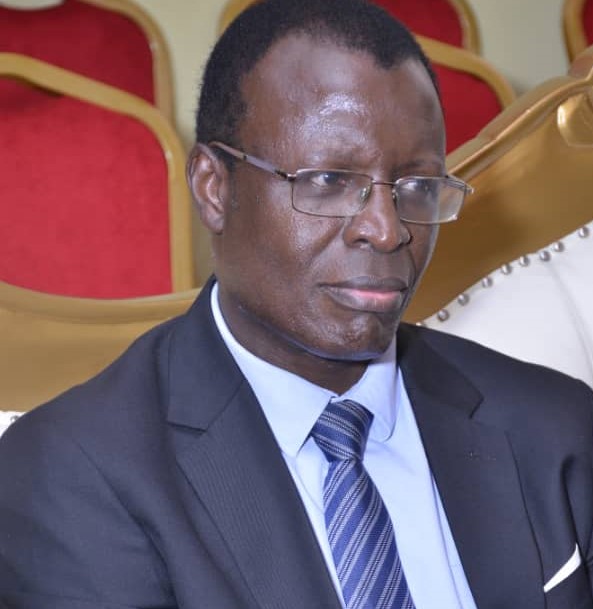You are here
- Home
- Blog
- Deploying international HE partnerships for improved Open and Distance Learning and employability strategies
Deploying international HE partnerships for improved Open and Distance Learning and employability strategies

In one of its projects in sub-Saharan Africa (SSA), the OU’s Faculty of Business and Law has teamed up with colleagues at the Institute of Open, Distance and eLearning at Uganda’s Makerere University to collaboratively study how international HE partnerships can be leveraged to improve Open and Distance Learning (ODL) and employability strategies.
The project was initiated at a particularly sensitive time globally as HE institutions grappled to develop ODL strategies that were fit for purpose during the pandemic. Some studies have pointed to the relatively modest rate of uptake of dual-mode delivery in SSA, despite its general recognition (e.g., Muyinda et al., 2019). Key barriers against more uptake include inadequate resourcing and epistemological, socio-cultural and institutional challenges (Kanwar et al, 2018). These barriers have ended up damaging the quality and the perception of ODL when compared with traditional models of learning and teaching delivery (Anietor, 2019). Specific areas that need attention include accreditation, student admission criteria, tutor and learner feedback, multimedia and instructional materials, student support services, assessment and evaluation.
A key gap in extant literatures is research that reflects the unique circumstances of fast-growing economies like Uganda that are strategically positioned to influence developments in their respective regions. In this case, what happens in Uganda has implications for countries like South Sudan and the Eastern Democratic Republic of the Congo (DRC) that are historically dependent on their smaller neighbour on various fronts, including higher education services. International partnerships like the one between the OU and Makerere University can play an important role in addressing some of these challenges by acting as vehicles for academic development and as catalysts for change.
Another challenge that was explored by the project is the generally high unemployment rate among graduates in Uganda and other SSA countries (Monitor, 2021). In a previous study (Mbalyohere et al., 2019), it was established that it is strategically important to link employability and entrepreneurship skills development more strongly rather than approaching them individually as has traditionally been the case. This was further necessitated by the tendency by fresh graduates to immediately launch small start-ups as a way of survival. A potential contribution by the OU could be the extension of its employability framework to make it relevant for such regions that are becoming ever more important for the global economy. Integrating an entrepreneurship dimension into the framework would be one such contribution. Experiences here would further contribute to the OU’s understanding of the needs of the ever-growing number of students from developing countries.
Staff development and taking ODL forward
The findings of our study reflect a growing comprehension and accommodation of the key factors that are a pre-requisite for a robust ODL programme. By pointing to the need to question assumptions about staff development and opening up a space for sustainable change, the participants in the study confirmed that new frontiers like Uganda have become fertile ground for ODL-associated growth. The reasons that the participants gave to justify their perceptions about staff development needs further point to emerging strategic thinking about ODL and what needs to be done to take it forward in new frontiers. The participants hence identified the need to ensure quality teaching and learning and the embedment of the changes in a wider paradigmatic shift as topmost considerations. This suggests that the perceptions go beyond short-term considerations and are linked to more long-term, strategic developments in the higher education sector in SSA.
Nevertheless, there are some concerns about the extent to which the new openness to ODL is only a temporary phenomenon reflecting the current pandemic dynamics. How much of the ODL growth trajectory will be sustained beyond the pandemic recovery period is something that will need to be watched carefully. The views on how HE institutions can collaborate in an international context constitute possible ways around these challenges.
Co-developing employability and entrepreneurship skills
The findings here provided a basis for ground-breaking work in SSA. The set of skills that were identified as basic for an employability and entrepreneurship framework will inform further work to come up with a stable centrepiece around which to design the final tool. Some identified skills like creativity and innovation already point to a strong entrepreneurship inclination that is strategically important in such markets that are growing fast and whose fresh university graduates must hit the ground running in figuring out how to survive on the labour and start-up markets. More broadly, the linkage points between classical staff development and this emerging tool were explored. The linkages need to be adaptable to evolving market needs. It is here that an opening has been made through this project to design a dynamic tool and to see it grow in tandem with the evolving economy in one of the fastest-growing regions globally. The study further opens a door to interact with important initiatives targeting this area of development, both nationally and internationally. Identifying the key initiatives to engage with will be an important element in the next phase of the project.
References
- Anietor, G. O. (2019). Approaches to promoting the quality of Open and Distance Learning (ODL) in resource poor nations. International Journal of Educational Research, 6(1), 127-133.
- Kanwar, A. S., Carr, A., Ortlieb, K., & Mohee, R. (2018). Opportunities and challenges for campus-based universities in Africa to translate into dual-mode delivery. Distance Education, 39(2), 140-158.
- Mbalyohere, C.; Aguti, J. and Nabushawo, H. (2019). Open and distance learning (ODL) as a strategic tool for improving employability and entrepreneurship in new frontier markets: the case of Uganda. In: Pan Commonwealth Forum 9 (PCF9), 9-12 September, Edinburgh, Scotland, Commonwealth of Learning.
- Monitor (2021) 87% graduates can’t find jobs. Online. https://www.monitor.co.ug/uganda/news/education/87-graduates-can-t-find-jobs-1691574 (Accessed: 25.11.2022)
- Muyinda, P. B., Mayende, G., Maiga, G., & Oyo, B. (2019). Widely Acclaimed but Lowly Utilized: Congruencing ODL Utilization with Its Wide Acclaim. Universal Journal of Educational Research, 7(2), 400-412.

Dr Charles Mbalyohere
Senior Lecturer in Strategic Management

Blog posts
- What happens when apprentices are made redundant 16th January 2024
- What is most important when integrating ‘green skills’ and sustainability topics into learning and teaching strategies? 11th December 2023
- Understanding what practice tutors in the Faculty of Business and Law need and want in their induction 6th December 2023
